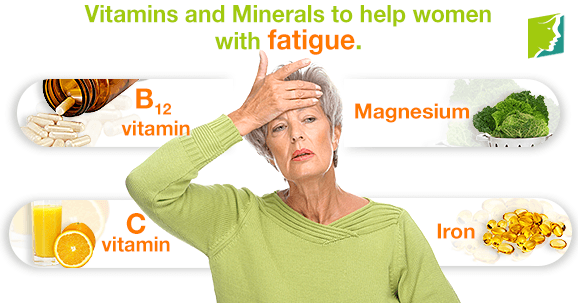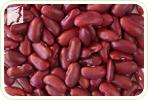Fatigue is a condition whereby the sufferer feels chronic exhaustion that does not always go away with sleep or rest. There are many different factors that seem to lead to fatigue, but the actual underlying cause of the fatigue itself is not fully understood, so treatments are normally based on symptom relief. Because there is such a wide range of symptoms, different people will benefit from different vitamins and minerals. Read on to discover the vitamins that are more commonly a help to those with fatigue.
Vitamin B12
One of the conditions that can lead to fatigue is megaloblastic anemia, which means the bloodstream contains abnormally formed red blood cells that cannot function properly. As a result, less oxygen is being transported around the body, so the natural consequence is a feeling of fatigue. Vitamin B12 is an important vitamin for the prevention of this type of anemia, making it an essential tool in the fight against developing fatigue, and it could be the cure of fatigue symptoms in a sufferer of megaloblastic anemia. The best food sources of this vitamin are beef liver and clams.
Magnesium
Magnesium has been shown to improve energy levels, as magnesium deficiency results in using more energy during exercise; this will result in feeling tired more quickly than normal. This faster “burn-out cycle” does not only apply to high intensity exercise, but also means that any kind of physical exertion needed to carry out everyday activities will require more rest and recovery time after physical exertion. To avoid or reduce fatigue, try foods that are rich in magnesium, like dark green, leafy vegetables.
Iron
Fatigue is often caused by an insufficient amount of iron in the diet. Iron is essential for energy because it facilitates oxygen transportation around the body. If there is not enough iron, then fewer red blood cells are produced, and these are essential for providing oxygen molecules to all the cells. Consequently, the major energy-making processes in the body - such as the metabolism - cannot function properly, leading to fatigue. To increase iron intake, consume more oatmeal, beef, and lentils.
Vitamin C
Vitamin C (ascorbic acid) works alongside iron and greatly increases iron absorption. Therefore, to get the most out of this vitamin, consume it alongside plenty of iron-rich foods. Many studies have shown that vitamin C is highly effective at reducing fatigue. Consuming plenty of fruits, especially citrus fruits, is a good way of getting vitamin C into your body.
Because fatigue is so different for every person, there is no one vitamin or mineral that will suit everyone, and some will be more effective for some sufferers than others. The most effective way to beat fatigue is to eat a varied diet full of a range of vitamins and minerals in order to avoid a shortage in any one kind.
Sources
- Cox, I.M. , Campbell, M.J. & Dowson, D. (1991). Red blood cell magnesium and chronic fatigue syndrome. Lancet, 337(8744), 757-760. Retrieved from http://www.ncbi.nlm.nih.gov/pubmed/1672392
- National Health Sources UK. (2013). Chronic fatigue syndrome - Treatment. Retrieved October 2, 2014, from http://www.nhs.uk/Conditions/Chronic-fatigue-syndrome/Pages/Treatment.aspx
- National Heart, Lung, and Blood Institute. (n.d.). What Is Iron-Deficiency Anemia? Retrieved October 2, 2014, from http://www.nhlbi.nih.gov/health/health-topics/topics/ida/printall-index.html
- National Institutes of Health. (2013). Herbal remedies and supplements for weight loss. Retrieved October 2, 2014, from http://www.nlm.nih.gov/medlineplus/ency/patientinstructions/000347.htm
- National Institutes of Health. (2011). Vitamin B12: Fact Sheet for Consumers. Retrieved October 2, 2014, from http://ods.od.nih.gov/factsheets/VitaminB12-Consumer/
- U.S. Department of Agriculture. (2014). Lack Energy? Maybe It's Your Magnesium Level. Retrieved October 2, 2014, from http://www.ars.usda.gov/is/AR/archive/may04/energy0504.htm?pf=1




